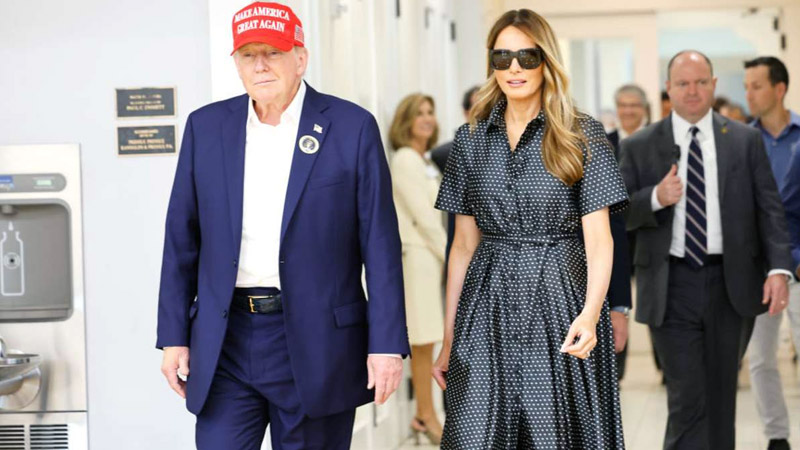Trump’s ‘Unprecedented Power Grab’ Could Bypass Senate Approval, Warns Columnist

Donald Trump greets the crowd during a campaign rally in Georgia. (Photo by Chip Somodevilla/Getty Images)
Even before officially resuming office, President-elect Donald Trump is reportedly laying the groundwork for an “unprecedented presidential power grab,” raising concerns about a potential erosion of constitutional checks and balances. According to Washington Post columnist Ruth Marcus, Trump’s push to bypass Senate approval for top appointments may lead to a significant and dangerous shift in the balance of power.
Trump has demanded that the next Republican Senate leader allow recess appointments, a tactic that enables a president to appoint officials without Senate confirmation when the Senate is in recess. While this may sound like a procedural detail, Marcus argues it could be a major threat to the separation of powers. “It’s actually a dangerous end run around the separation of powers,” Marcus wrote, highlighting how recess appointments could sidestep the Senate’s constitutional role in vetting high-level appointees.
In her column, Marcus explained the purpose of Senate confirmation as a constitutional safeguard. “No president likes it, but the authority to pick appointees comes with a constitutional speed bump: Cabinet secretaries and others in high positions must be confirmed ‘by and with the advice and consent of the Senate,’” Marcus wrote. Bypassing this step, she noted, would not be in line with “the separation of powers that the framers envisioned but a president without checks and a system dangerously out of balance.”
While both parties have historically used recess appointments, Marcus pointed out that Republicans had criticized former President Barack Obama for using them during periods when the Senate was holding brief sessions to avoid recess. Yet, now Republicans seem open to Trump employing this same strategy.

“But that was then — and this is Trump,” Marcus wrote. “What is really going on here? Is Trump planning to nominate officials so extreme that he could not get them through the confirmation process despite the comfortable padding of a likely 53-seat majority?” This shift, Marcus suggested, could reflect Trump’s plans to fill his administration with individuals whose views and policies might be too controversial to secure bipartisan support.
Senate Democrats could technically block the procedure required to consent to a recess, potentially stalling Trump’s attempts at recess appointments. However, Marcus warned that Trump might have other ways to circumvent the Senate’s role in appointments. During the COVID-19 pandemic, he even hinted at suspending the legislative branch to force appointments through, though he ultimately did not follow through on the idea.
Marcus raised a concerning possibility: “One way or another — either because the supine Senate steps aside or because Trump suspends the legislature, as no president has done before — Trump installs his chosen officials without bothering to obtain Senate approval.” This drastic measure, Marcus argued, could set a dangerous precedent, allowing future presidents to erode the Senate’s role in oversight and reducing the checks on presidential power.
As Trump prepares for his second term, Marcus’ analysis warns of a possible breakdown in the balance of power between the executive and legislative branches. Recess appointments could effectively weaken the Senate’s role in federal appointments, creating a “president without checks” and potentially reshaping the structure of government. The question Marcus posed remains pressing: “Can anyone stop him?”


